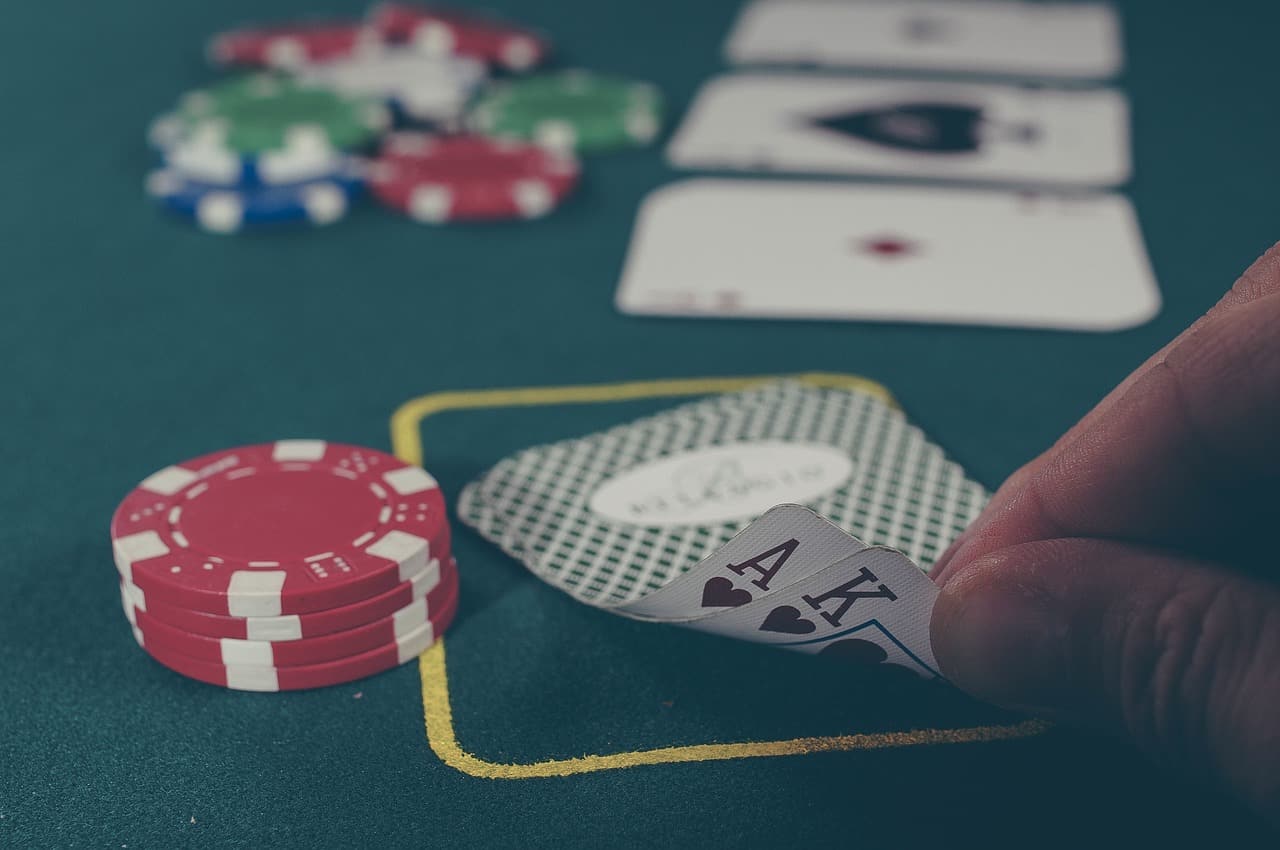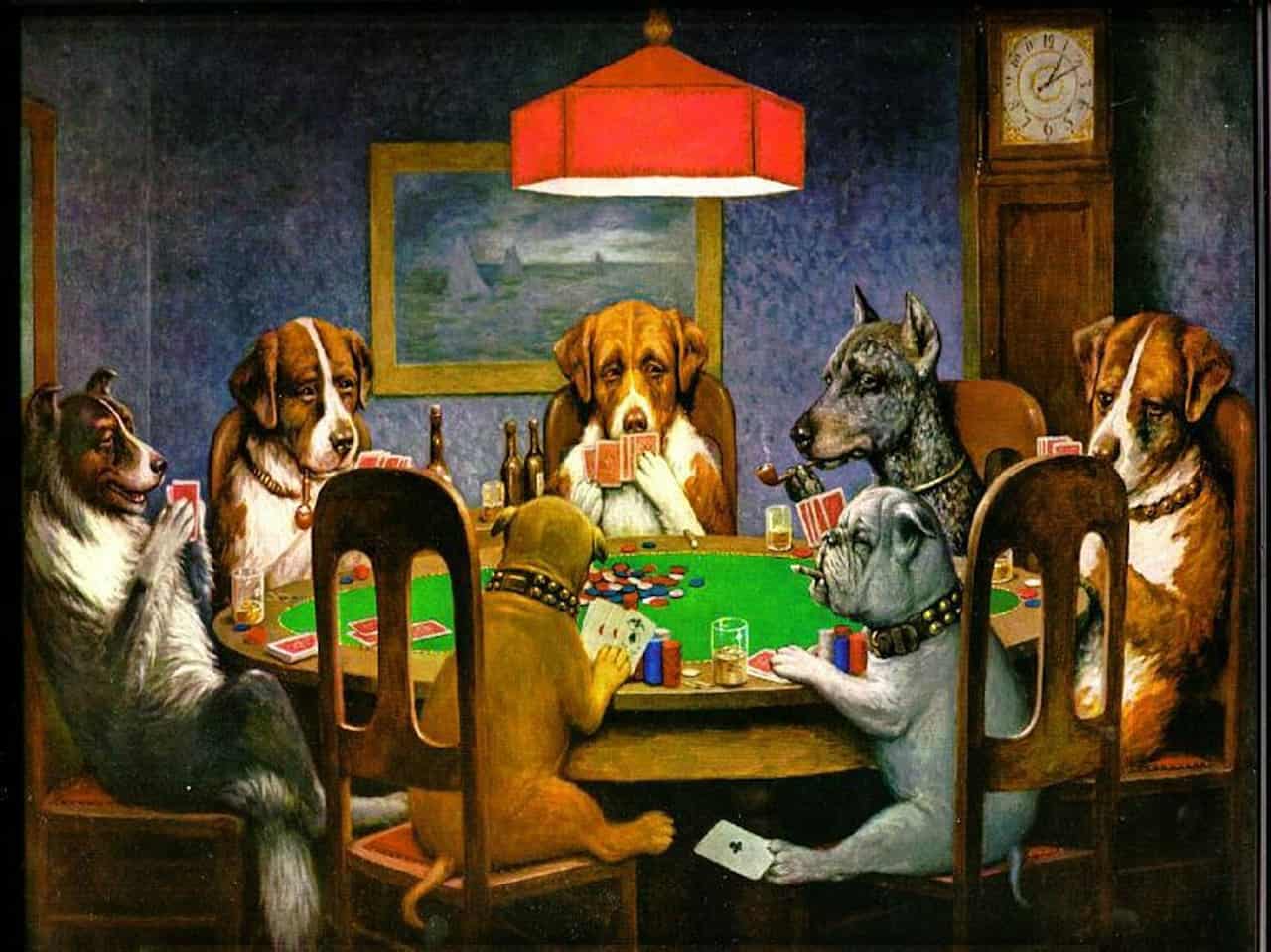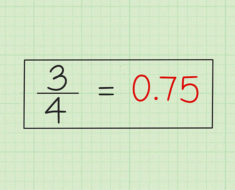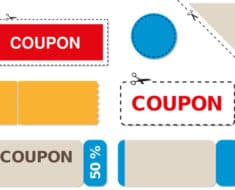
Source: Pixabay
On the face of it, poker is a simple card game where luck and skill combine to decide who will get their hands on the chip stack. But as anybody who has played the game can tell you, there is so much more to poker than simply knowing the rules and hoping for the best.
This is a hobby where the mental side of the game can be the difference between success and failure. When Kenny Rogers sang “you’ve got to know when to hold ‘em, know when to fold ‘em”, the country singing sensation was part of the way towards being a competent poker player.
But what about having the quickness of thought to make those key decisions?
What about having the mental agility to make those choices under time pressure?
What about analyzing the behaviors and patterns of fellow players?
Poker is a simple card game, but if you want to enjoy prolonged success at the table then you really need to consider sharpening up your psychological approach to it.
And why not take the time to do exactly that, because poker can teach us lessons that we can use in everyday life too.
Do you feel as though you lack sharpness and clarity when making decisions, either in the workplace or in your home life?
Do you wish you could solve problems more effectively, or be more critical in your thinking?
Do you long for the ability to read people’s actions and motives better?
Poker is a quick, accessible and free (if you want it to be) way of improving your skills as far as these three questions go: this is excellent brain-training material that also happens to be fun, too!
So let’s take a look at three ways in which poker can help to ‘train your brain’, enhancing your skill set for a happier home and working life.
How to Make Better Decisions
Every day we find ourselves with decisions to make. These can be arbitrary and inconsequential: where to go for dinner, where to vacation this summer etc. But occasionally we will face choices in our personal and professional lives that are serious, meaningful and have some kind of impact on the rest of our lives.
Many of us bemoan our ability to make the ‘right call’, and believe that our history of poor decision-making is down to just pure bad luck or the universe working against us.
Straight away, we need to snap out of that mindset because, in life, you could say that we make our own luck based on the decisions we take.
Poker teaches us that we will always make bad decisions to some extent – we’re only human, after all – but that we can minimize the frequency of these and also mitigate their impact. This free poker coaching guides teaches us that we can make ‘better bad decisions’, which might sound like a contradiction of terms but actually makes a lot of sense. Whether we’re playing Texas Hold’em, 7-Card Stud or Omaha Hi/Lo, we accept we will make bad decisions but – and this is the crucial part – we can ensure those bad decisions are risk managed. In the end, it’s about making less impactful bad decisions, where the outcome is an inconvenience rather than something more serious.
Think about how this relates to your working life. Maybe you have made an error in your work, and now have to come clean to your boss or a client?
Would you normally dive into this situation rashly and with both feet? Consider how you might act in a more analytical fashion – the ‘poker way’, if you will.

Source: Pixabay
Caption: Poker teaches us how to make better decisions in the workplace
Admitting your mistake is like folding your hand after you have called to see the flop: yes it feels bad, but cutting your losses and minimizing the damage to your reputation/chip stack will ensure you sleep a whole bunch easier at night! Even beter: explain how you can redeem yourself and find a better solution to a problem left unsolved.
How to Solve a Problem
Have you ever taken an IQ test? Here, you have a range of tasks to solve that can be visual, numerical or that test your analytical skills. IQ tests are designed to give an average score of 100, and in the USA the average IQ is 98. That ranks the US as the 24th most intelligent country in the world, if you believe in such things, and yet many of the best poker players on the planet come from North America.
That goes to show that you can have a high poker IQ, which is a talent that, when harnessed correctly, can also aid your everyday life.
If you watch a World Series of Poker event, you will notice that most players will take a good amount of time to consider their next move. In some instances, this is a bluff – the player knows they have a strong/weak hand, and their pausing is for mere dramatic effect. But often this inordinate thinking time is not for show: the player is taking the time to consider all of the options available to them, and also the ramifications of their next move.
You may have heard of the groundbreaking book Thinking, Fast and Slow by the Nobel Prize laureate Daniel Kahneman. It’s such a clever title because it explains how we can solve problems more effectively, both in life and in poker. The author calls on two aligned systems for processing thoughts: System 1 is our intuition, and System 2 is a logical process of thinking things through. Combine these two elements, which are inherent to poker success, and you might prosper in your personal and professional decision-making too.
How to Read People
Are they bluffing, or do they have pocket aces and that’s why they’ve gone all-in?
Knowing how to read people is as key in poker as it is in life, and in both cases success in being able to predict patterns of behavior is a learned experience, i.e. you will get better at it with time. We can even learn how to recognize the signs that somebody is lying to us!

Source: Pixabay
Caption: Studying your fellow players is key to success in poker… and in life
Think about a partner, work colleague or a friend that you have known for, say, three to five years. When you first got to know that person, you wouldn’t necessarily know how they would react to certain situations, and yet a handful of years down the line and you can probably state with some certainty how they will cope with situations that promote stress, grief, happiness or surprise.
In poker, you have to get to know your opponents a lot more quickly than that. So take the time to study their every move: facial expressions, body movements, thinking time and how they play each hand – is this somebody that will tilt, or are they a calm, methodical player?
Many people assume you can’t get a read on your opponents when playing online poker. It’s harder than in the flesh, that’s for sure, but not impossible. Simply watch how they play each hand, and make notes – either mentally or literally on a piece of paper – about how they go about their business. Aggressive or conservative? Rational or scattergun? A quick thinker or somebody who feels the pressure?
Working out the people around you, at home, in the office or at the poker table, is another way to sharpen your mental game for success.









































